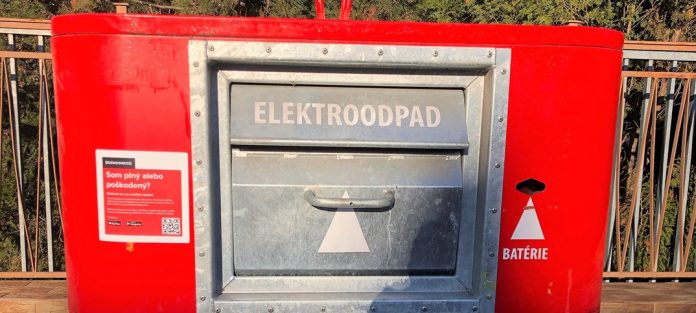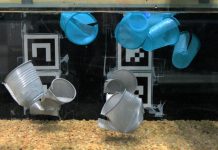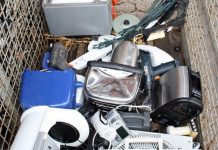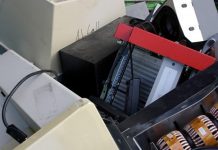Thanks to the monitoring of its containers for electronic waste with the Sensoneo solution, Asekol is able to empty only those containers that really need it. It thus avoids unnecessary transport journeys, reduces the environmental footprint of its service, and provides the citizens with a convenient way to responsibly dispose of small electrical waste.
Asekol SK, s.r.o., is the extended producer responsibility organization that organizes and finances a nationwide WEEE take-back system. They collect, recover, and recycle electrical waste, batteries, and accumulators. The company has been active on the market for over 11 years and in 2020, they collected 11224 tons of e-waste.
The collection of electrical waste through the containers distributed across various municipalities in the country is one of the key collection pillars. Thanks to them, the public can easily and responsibly dispose of its small electrical waste and ensure it is correctly processed with a minimum environmental footprint. Currently, there are almost 300 containers available to citizens. Containers are available for mobile phones, IT equipment, hobby tools, kitchen appliances, electronic toys, and batteries, and small electrical waste with maximum dimensions of 51 x 36 x 40.
Smart monitoring deployed to improve the service
When managing such an infrastructure, the correct logistics of the transport is crucial, while reliable information on the filling of containers is irreplaceable for the operator. This was the primary motivation of Asekol to monitor all their containers:
“Our goal was to avoid the collection of empty and half-empty containers, avoid unnecessary blind journeys and decrease the environmental footprint of our service. Along with that, we wanted to avoid overflowing, so that the public has always enough free capacity in containers, “explained Ronald Blaho, the director of Asekol SK, s.r.o.
Each Asekol container is equipped with a Sensoneo sensor, which uses ultrasonic technology to monitor the fullness of the container several times a day (usually every four hours). This data is immediately available to the operator in the Sensoneo platform, including the fullness prediction. Thanks to this data, the operator can proactively plan the collection schedule – according to the real need.
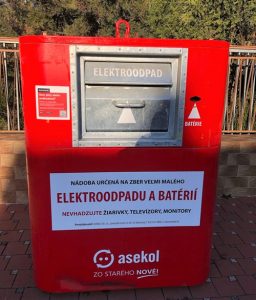
Each container is also marked with a sticker with a QR code for quick access of citizens to the free mobile app. Tomáš Štefančík, Sales Representative of Asekol: “In the application, they can find the nearest free container or alert us to any problem on the stands, so we could solve it quickly.” And Ronald Blaho, Director of Asekol SK, s.r.o., adds: “Sensors have simply become our eyes. We can ensure we collect only full containers and efficiently plan the routes for our drivers. We have almost completely prevented overfilling of containers, and thanks to the Citizen app, we can promptly solve any sudden problems”
The impact of the solution
- Lower environmental footprint: The operator knows exactly when and which containers will be full. The vehicle does not collect containers preventively. The Sensoneo system automatically plans the shortest possible route, which ensures that only full containers will be collected, and the full capacity of the car will be used.
- Better planning capabilities.
- Thanks to the Sensoneo fullness predictions, the Operator can plan a route without stress well in advance. Sensoneo monitors the dynamics of the fullness.
- An extra mile towards recycling support.
- Thanks to real-time monitoring, no container gest filled without the operator’s knowledge. Thanks to on-time collection, citizens are always with sufficient free capacity in containers and so they can dispose of their electrical waste responsibly.
Source: Sensoneo, j.s.a.


